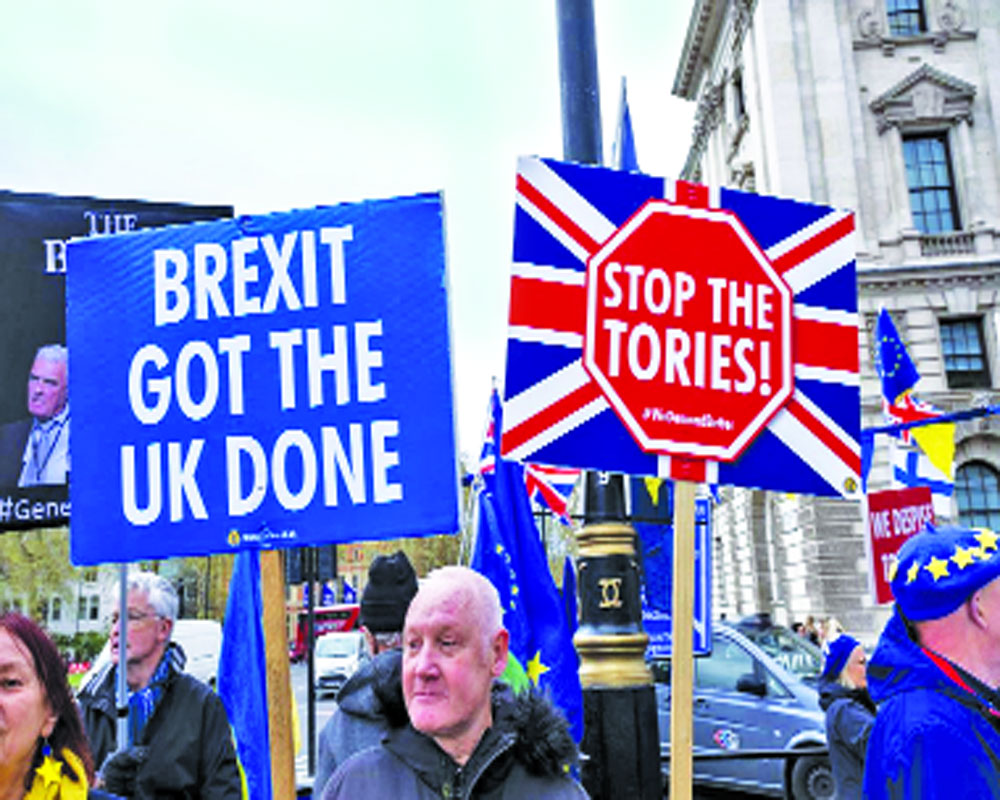The talk of a European single market and a single currency had set the pigeons among British hearts
The September 1988 “Bruges speech” of Margaret Thatcher marked a watershed in Anglo-European history when she warned against the threat of a European super-state dominance from Brussels over the United Kingdom.
Dan Hannan, a passionate history student at Oxford, emerged as the young stormtrooper of the movement. The opposite camp was led by the Eurocentric Maastricht Treaty followers. By September 1992 on “Black Wednesday” the European Exchange Rate Mechanism collapsed. Yet in July 1993, the Maastricht Treaty received Royal assent. Pretty soon an anti-Maastricht band of MPs formed the European Research Group (ERG) with Hannan as its first secretary and employee. By 1997 Rishi Sunak, about to go up to Oxford as an undergraduate, was getting worried at the thought that Tony Blair had plans for the possible breakup of the United Kingdom and the rise of a European super state. As if to calm the nerves, along came Dominic Cummings to fight off Blair’s plans to join the euro. Hannan and Cummings became the double engine of the anti-European group!
Hannan also became the first full-time secretary of the anti-Maastricht “European Research Group (ERG)” one of whose star members was to be young Jacob Rees-Mogg. The “Bruges Speech” bombshell against any super-state dominance from Europe scotched all talk of any single market or closer political integration with Europe. A Eurosceptic ecosystem was in the ascendant. Margaret Thatcher resigned and the first thing she did in January 1991 was to become president of the Bruges Group.
The Conservatives ousted Thatcher when she offered MPs a second referendum and joined a temporary customs union with the EU. She pulled her Withdrawal Agreement Bill after apparently accepting her failure. A dramatic end for the “Iron Lady” and the arch Brexiteer. She died in April 2013 after suffering a stroke.
The Oxford Campaign for an Independent Britain (CIB) could well be described as the genesis of Brexit itself which along with the ” Bruges Group” became the flag bearer of an independent Britannia. The CIB quickly became mainstream. In November 1991, Edward Heath, who happened to join the debate in Oxford, was hissed repeatedly on points of information. The anti-European motion was carried by 108 votes. The Brexit victory had come full circle and unstoppable.
Brexit's long-term impact on the UK is a complex and evolving matter that can't be easily summarized as purely positive or negative. Different people and groups in the UK hold various opinions about whether Brexit was a beneficial move or a regrettable decision. One of the major concerns around Brexit was its potential impact on the UK's economy. Proponents argued that Brexit would allow the UK to have more control over trade and regulations, potentially leading to new trade deals and economic growth. Critics, on the other hand, raised concerns about disruptions to trade with the EU, potential job losses, and economic uncertainty.
And after 30 months critics seem to have got it right. Besides, Brexit exposed divisions within UK society and politics, with different regions and demographics having varying opinions on the issue. It also raised questions about the future of Scotland's place in the UK, as Scotland voted overwhelmingly to remain in the EU. The possibility of another Scottish independence referendum has been discussed as a potential consequence of Brexit.
It's important to note that public opinion on Brexit is diverse. Some may see positive outcomes in terms of regained sovereignty and new trade opportunities, while others may view negative economic impacts and geopolitical challenges.
(The writer is a senior journalist based in the UK. The views expressed are personal)


























